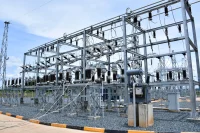It is now official. Kenyan universities are training graduates unsuitable for the job market.
This is due to inadequate participation by the relevant industries in development of universities curriculums.
These findings are laid bare by the National Treasury in its Education Sector Report for the Medium Term Expenditure Framework 2018/19-2020/21.
The report released in 2018, reviews the education sector detailing milestones made in the since 2014.
The report explains that the disconnect between varsity training and industry requirements has led to a mismatch between demand and supply of labour hence the high rates of unemployment and low productivity.
For instance in the media industry, media houses and editors rarely contribute in the formulation of university curriculum, hence the low absorption of graduates by the fourth estate.
This goes a long way in explaining why employers are reluctant to employ graduates fresh from campus.
In March, student leaders from 16 public and private universities complained to Education Cabinet Secretary Amina Mohammed , accusing universities of not assigning them competent lecturers.
The student leaders said this led to many graduates missing out on jobs due to poor training.
According to a United Nations Human Development Report released in September last year, Kenya has the highest rates of unemployment in East Africa.
The report revealed that out of 10 Kenyan graduates, four of them are unemployed which means that 39 per cent of the country’s youth who are of working age are jobless.
At the height of presidential campaigns last year, President Uhuru Kenyatta expressed concerns over the growing number of unemployed youth.
He promised a one year paid internship for all graduates once he was re-elected.
Months down the line, experts have raised concerns over the project’s feasibility and how it will be implemented to suit the career paths of the graduates.
The treasury has however outlined that plans are in the pipeline to reform university education.
“Restructuring of the sector will therefore facilitate acquisition of new knowledge in a systematic way in order to produce and improve products and processes generated in the country,” reads the report.
In addition, The Ministry of Education plans to promote innovativeness and popularise research, technology and innovation in industries and learning institutions.
Strengthening linkages amongst government, industry and academia are also ideas that have been mooted by the government.













3 Comments